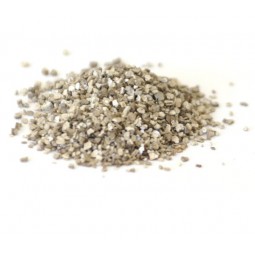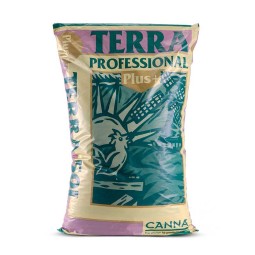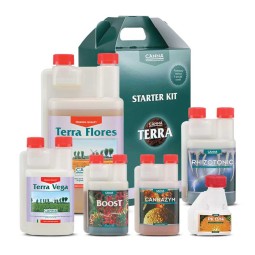GrowShop Baltic pH Minus Bloom
pH-regulator for the flowering and fruiting phases. When using pH Minus Bloom, additional phosphorus is released. It will not replace fertilizers and boosters, but become part of the nutrition. Optimal pH level for various substratesPlants are able to absorb nutrients within a certain pH range, as shown in the illustrations below. Optimal pH values are those in which all nutrients can be absorbed. For soil and hydroponics, the range of values is slightly different
... Read morepH-regulator for the flowering and fruiting phases. When using pH Minus Bloom, additional phosphorus is released. It will not replace fertilizers and boosters, but become part of the nutrition.
Optimal pH level for various substrates
Plants are able to absorb nutrients within a certain pH range, as shown in the illustrations below. Optimal pH values are those in which all nutrients can be absorbed. For soil and hydroponics, the range of values is slightly different.
The optimal pH range for soil is 6.0–7.0
The optimal pH range for hydro/coco/rockwool is 5.5–6.5
Dosage and Directions of use of pH Minus Bloom
Important! Be careful when handling concentrated acid. Use chemical protection equipment — protective glasses, rubber gloves and a suit.
How to measure pH level of a nutrient solution?
In order of increasing measurement accuracy: paper strips, drip tests and electronic pH testers. Check the pH value before and after using the pH-regulator.
How to calculate the dosage of the pH-regulator pH Minus Bloom?
Dosage 0.5–25 ml per 10 liters of nutrient solution to lower the pH by 1.0 unit. Why such a big spread? The ability of a pH-regulator to change the pH value is directly related to the concentration of the nutrient solution. The higher the EC/PPM value, the more acid must be added to change the pH by the same 1.0 unit. That means, as the plants develop and fertilizers are added, the pH-regulator consumption will also increase.
Water temperature and the chemical composition of fertilizers also affect the pH level, but it is not necessary to take them into account when calculating the dosage.
Add the pH-regulator to the solution last, after all fertilizers. Start with 0.5 ml pH Minus Bloom per 10 liters of solution. Stir the solution, after 2–3 minutes measure the pH again, adjust the dosage according to the new values and repeat the measurement. It is possible that the cycle of additions/measurements will have to be carried out several times. Already after 3–4 waterings, your experience will allow you to determine the dosage by eye, without numerous additions.
The composition of the pH-regulator pH Minus Bloom
Orthophosphoric acid H3PO4 — 58%














